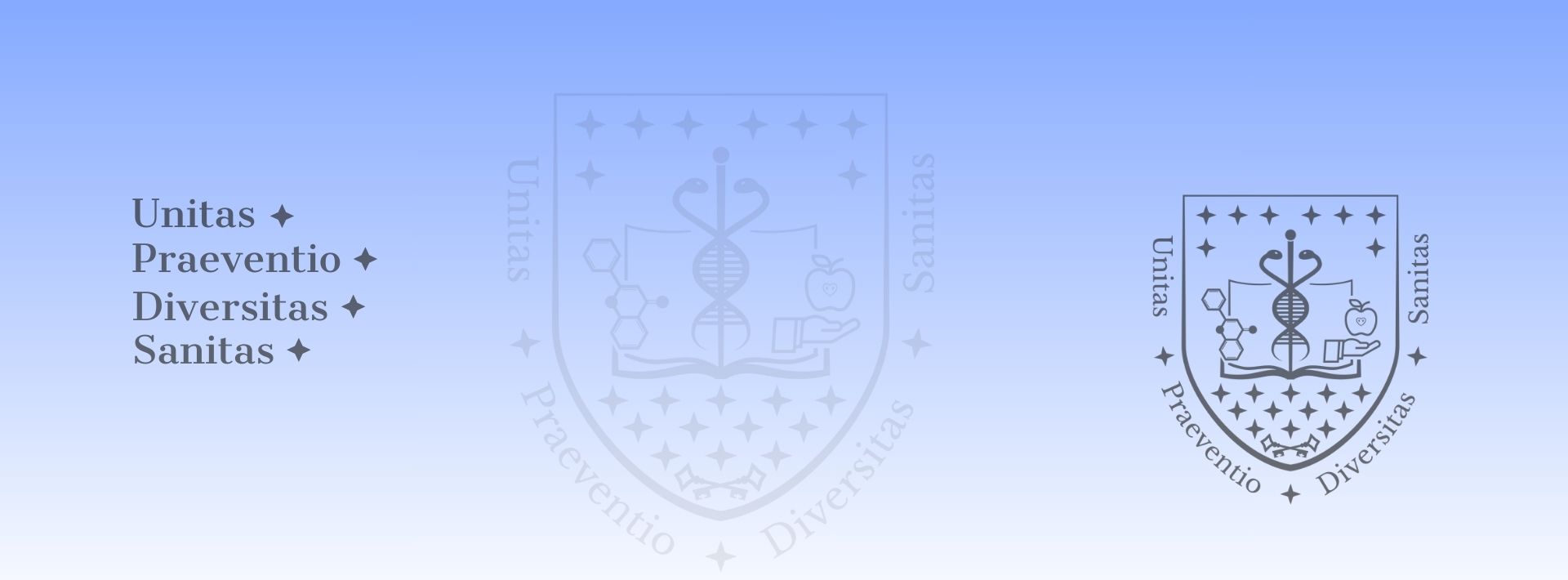Daten
Offizielle Daten in der Fachveröffentlichung für das folgende akademische Jahr: 2024-2025
Lehrbeauftragte/r
-
Kiss István Zoltán (Népeg)
professor,
Department of Public Health Medicine -
Semesterwochenstunden
Vorlesungen: 28
Praktika: 0
Seminare: 0
Insgesamt: 28
Fachangaben
- Kode des Kurses: OPO-KE1-T
- 2 kredit
- Pharmacy
- Medical-biological theoretical module and practical skills modul
- autumn
OPO-MA2-T finished , OPO-EN2-T finished
Zahl der Kursteilnehmer für den Kurs:
min. 5
Thematik
Public Health represents the preventive side of medicine. The subject deals with primary, secondary and tertiary prevention of the most challenging diseases of public health.
The aims are to exam the process of disease development and demonstrate the possibilities of prevention on individual and community levels.
Vorlesungen
- 1. Global overview of health status. Definition of health and disease. Health determinants. - Kiss István Zoltán (Népeg)
- 2. Global overview of health status. Definition of health and disease. Health determinants. - Kiss István Zoltán (Népeg)
- 3. History of public health. Scope of preventive medicine. Basics of disease prevention. Levels of prevention. - Kiss István Zoltán (Népeg)
- 4. History of public health. Scope of preventive medicine. Basics of disease prevention. Levels of prevention. - Kiss István Zoltán (Népeg)
- 5. Demography. - Horváth-Sarródi Andrea
- 6. Demography. - Horváth-Sarródi Andrea
- 7. Basics of epidemiology, epidemiological indicators. - Szabó István (Népeg)
- 8. Basics of epidemiology, epidemiological indicators. - Szabó István (Népeg)
- 9. Epidemiological studies. - Szabó István (Népeg)
- 10. Epidemiological studies. - Szabó István (Népeg)
- 11. Nutritional epidemiology 1.: Basics of nutrition. Healthy nutrition, dietary recommendations. Nutrition related diseases. - Szabó István (Népeg)
- 12. Nutritional epidemiology 1.: Basics of nutrition. Healthy nutrition, dietary recommendations. Nutrition related diseases. - Szabó István (Népeg)
- 13. Nutritional epidemiology 2.: Nutritional habits, fad diets. - Kiss István Zoltán (Népeg)
- 14. Nutritional epidemiology 2.: Nutritional habits, fad diets. - Kiss István Zoltán (Népeg)
- 15. Nutritional epidemiology 3. Role of diet in the development of major chronic non infectious diseases. - Kiss István Zoltán (Népeg)
- 16. Nutritional epidemiology 3. Role of diet in the development of major chronic non infectious diseases. - Kiss István Zoltán (Népeg)
- 17. Screening. - Szabó István (Népeg)
- 18. Screening. - Szabó István (Népeg)
- 19. Epidemiology of cardiovascular diseases. - Kiss István Zoltán (Népeg)
- 20. Epidemiology of cardiovascular diseases. - Kiss István Zoltán (Népeg)
- 21. Cancer epidemiology. - Kiss István Zoltán (Népeg)
- 22. Cancer epidemiology. - Kiss István Zoltán (Népeg)
- 23. Epidemiology of diabetes and obesity. Epidemiology of osteoporosis. - Horváth-Sarródi Andrea
- 24. Epidemiology of diabetes and obesity. Epidemiology of osteoporosis. - Horváth-Sarródi Andrea
- 25. Epidemiology of respiratory and gastrointestinal diseases. - Lohner Szimonetta Ivett
- 26. Epidemiology of respiratory and gastrointestinal diseases. - Lohner Szimonetta Ivett
- 27. Epidemiology of suicide, epidemiology of mental disorders. - Horváth-Sarródi Andrea
- 28. Epidemiology of suicide, epidemiology of mental disorders. - Horváth-Sarródi Andrea
Praktika
Seminare
Materialien zum Aneignen des Lehrstoffes
Obligatorische Literatur
Edit Paulik: Public Health and Preventive Medicine, Medicina Publishing House, Budapest 2013.
Vom Institut veröffentlichter Lehrstoff
Educational material uploaded on Neptun.
Skript
Empfohlene Literatur
Voraussetzung zum Absolvieren des Semesters
-
Semesteranforderungen
-
Möglichkeiten zur Nachholung der Fehlzeiten
-
Prüfungsfragen
Questions of choice Public Health 1.
1. Global overview of health status.
2. Definition of health and disease. Health determinants.
3. History of public health. Scope of preventive medicine.
4. Basics of disease prevention. Levels of prevention.
5. Demography.
6. Basics of epidemiology.
7. Epidemiological indicators.
8. Epidemiological studies.
9. Basics of nutrition. Nutritional habits.
10. Nutrition related diseases.
11. Healthy nutrition, dietary recommendations.
12. Role of diet in the development of major chronic non infectious diseases.
13. Screening.
14. Epidemiology of cardiovascular diseases.
15. Cancer epidemiology.
16. Epidemiology of obesity.
17. Epidemiology of diabetes.
18. Epidemiology of osteoporosis.
19. Epidemiology of respiratory diseases.
20. Epidemiology of gastrointestinal diseases.
21. Epidemiology of suicide and mental disorders.
Prüfer
- Gyöngyi Zoltán
- Kiss István Zoltán (Népeg)
- Szabó István (Népeg)
- Szendi Katalin
- Varga Csaba (Népeg)
